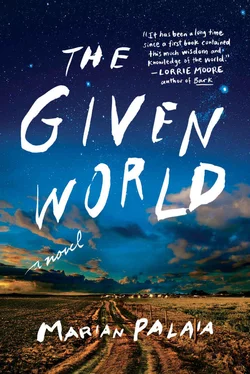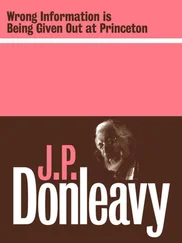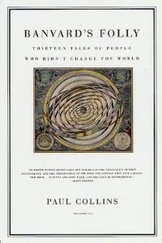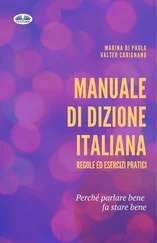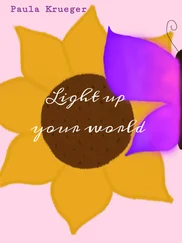People come, a lot of people. They tell me about times my father helped out, with a calf, a tractor in the ditch, a truck off the road in a blizzard. A few even mention his first wife, delicately, in the context of how lucky he was to have found my mother after the accident. And how fine a young man Mick had been turning out to be. They were sorry, they said after all these years, for our loss. Losses.
Gail comes. She is with her husband, and she keeps staring at me. She looks old and sad. I tell her I’m sorry I didn’t write back after the last letter. It was more than I could deal with. I hope she understands. I can see she doesn’t, but I can’t do anything about that now.
No one stays very long, but they leave enough food to last the two of us at least a month. I fit it all into the fridge and the freezer somehow, and we head outside to drink a beer. Before we go, I find a pack of cigarettes my father had stashed in a cupboard, not really hidden, just out of sight. I put them in my pocket, take them with me. I don’t think I want a cigarette; think instead I just want the temptation so I can resist it, so I can congratulate myself for some damn thing.
I was supposed to come back sooner. I have known this, in some not-as-hard-as-I-made-it-to-get-to place, forever. Known that these people, my people, were not exactly encased in amber, waiting for me to come along with my little rock hammer.
I took too long. I barely had time to say hello. Among other things. I missed you, Dad. I’m sorry I missed you, Dad. But, hey, can you still help me get this boulder off my chest? I don’t know who else to ask.
“Do you think,” I say to my mother, “some people are too good for this world?”
“Your father and your brother,” she says, as if she is agreeing with me.
“Yes.”
“Maybe,” she says. “Those two were certainly good enough.”
“I lost everything,” I say. “Everything of Mick’s.”
She says, “No, you didn’t. Go look.”
She is biting her hair. I can feel her body vibrating. She reaches for my hand and squeezes. Then she’s gone, like a cat burglar, through an opening in the fence where a gate used to be. I am on my own to see what’s left, which is as it should be. Certainly she already knows. I could understand if she was sick and tired of knowing.
I drink her beer after I have finished mine, stare at the house for a while, go on a ghost hunt. It’s not hard to find them; they haven’t left the premises.
There are still a few boxes in Mick’s closet — stuff I didn’t take when I left, even though my name is still written on a lot of it. I didn’t take it because there was only so much room in the trunk of my car, and I didn’t know, really, where I was going, as the West Coast is a very long one. And maybe I knew enough to keep something in reserve. Maybe I at least knew that, but I had forgotten.
I find drawings of animals, birds, the river, the mountains, wildflowers, me. In a small, obviously handmade wooden box is a photo of a young man, maybe eighteen or nineteen, I have never seen before. It is quite old, cracked around the corners and overexposed, a little bit out of focus but still somehow recognizable, as is the shadow of the person who took it. There is a drawing of this boy’s face too, and next to it a self-portrait. They are not identical, but there is no mistaking the resemblance.
I make a ring of the drawings, lie on the floor in the middle of it. I reach out and put my hands on every piece of paper I can touch, waiting for one, any one, to touch back. The cool floor holds me there while I follow the cracks in the ceiling to the cobwebs in the corners. I flop my head to one side and look under the bed. Dust bunnies and his other guitar. The classical one. If I tried to tune it, I know it would just piss me off, but I am almost tempted to try. Almost.
In my parents’ room it is evident Mom has been sleeping on top of the covers, as there is a slight depression in the comforter on her side, and a blanket kicked down to the bottom of the bed. Medicine bottles and his inhaler still sit on Dad’s night table, and a book: To Kill a Mockingbird . I pick it up, and the bookmark is one of my school photos, from the second or third grade. He has just gotten to the part where Scout is stumbling through the woods dressed up like a ham. Had . He had just gotten to the part. I can’t read any more of the words, can’t make my way through to where it all works out in the end, so I put the picture back, put the book down.
I pull open my mom’s slip drawer, from where I used to nick the goods to play dress-up, before the tomboy in me kicked in and took hold. I find a stack of letterss tied up with a shoestring. The two oldest ones are postmarked 1948 and ’49, from Fargo. They look like they have never been opened. Others are from Mick: from Missoula, from basic, from Vietnam. I will save those for later, for when there is enough time, space, beer, whatever. A few are from my father, not stamped or addressed; simply, I imagine, handed over or left on the table or her pillow. They say he loves her. Mick. Me. They say clearly this is the life we were meant for, after all was said and done. It was just a matter of getting here. And staying.
One letter is from my father to me. It begins, “Dearest Wanderer.” It talks about the animals. About my mother. About rain. It is in an envelope with my name on it, but no address. Another, quite a long one from my mom, mailed to an old address in San Francisco, is marked “Return to Sender” by an unknown hand. I try to think back to where I was then. Figure she missed me by six months or so. Around the middle of the worst years. This one I open to read. She was trying to tell me something. A few somethings. One, she didn’t know what M-O-T-H-E-R stood for. I want to tell her she’s not alone. But I also want to tell her I think she’s wrong. She knew. She just didn’t know she did. Two, Mick is my half brother. I don’t know where to go to begin to process the actual words, the pronouncement. The thing is, I knew. I don’t know what good any more processing would do now. Or ever. Because it doesn’t matter.
I wonder why she never sent the letter again after I resurfaced. A change of heart, I suppose. Or she forgot about it. Or maybe it was never really meant for me. I put it back. I wonder if all homes are so full of surprises. I want there to be someone here to ask, Where have I been all your life? But there are letters from me as well, so I was somewhere. I was real.
A stack of postcards from Slim. “Dear Miss Rose,” they say, “Thank you for the birthday card. Thank you for the check.” The handwriting on the most recent ones is an adult’s. I wonder when she stopped. I wonder if.
I look out the window of my parents’ room. It faces away from the road to pure, open, absolute nothingness. I think I see my mother in the distance, tacking across what used to be a wheat field, a small one, compared with what surrounds us. But it was enough. I remember her kneading dough; I remember bread straight out of the oven. I decide to make some — tomorrow, maybe — though I have not tried since I lived with the Cajun shape-shifter; tried the patently impossible trick of making him happy, a very, very long time ago on a hill in San Francisco, from where I could almost see the bay.
My room is the same, though the paint around the windows is peeling some, and the fish seem in places to have lost their way. My stuffed rabbit is still on the bed. Both eyes are missing, and still just the one ear. If I didn’t know what it was supposed to be, it would take some doing to figure it out. A few remnants of my kid life hang from hooks in the closet: a nearly disintegrated pair of overalls, a red scarf, a beaded belt. Ancient T-shirts lie crumpled on the floor like a pile of sleeping kittens.
Читать дальше
